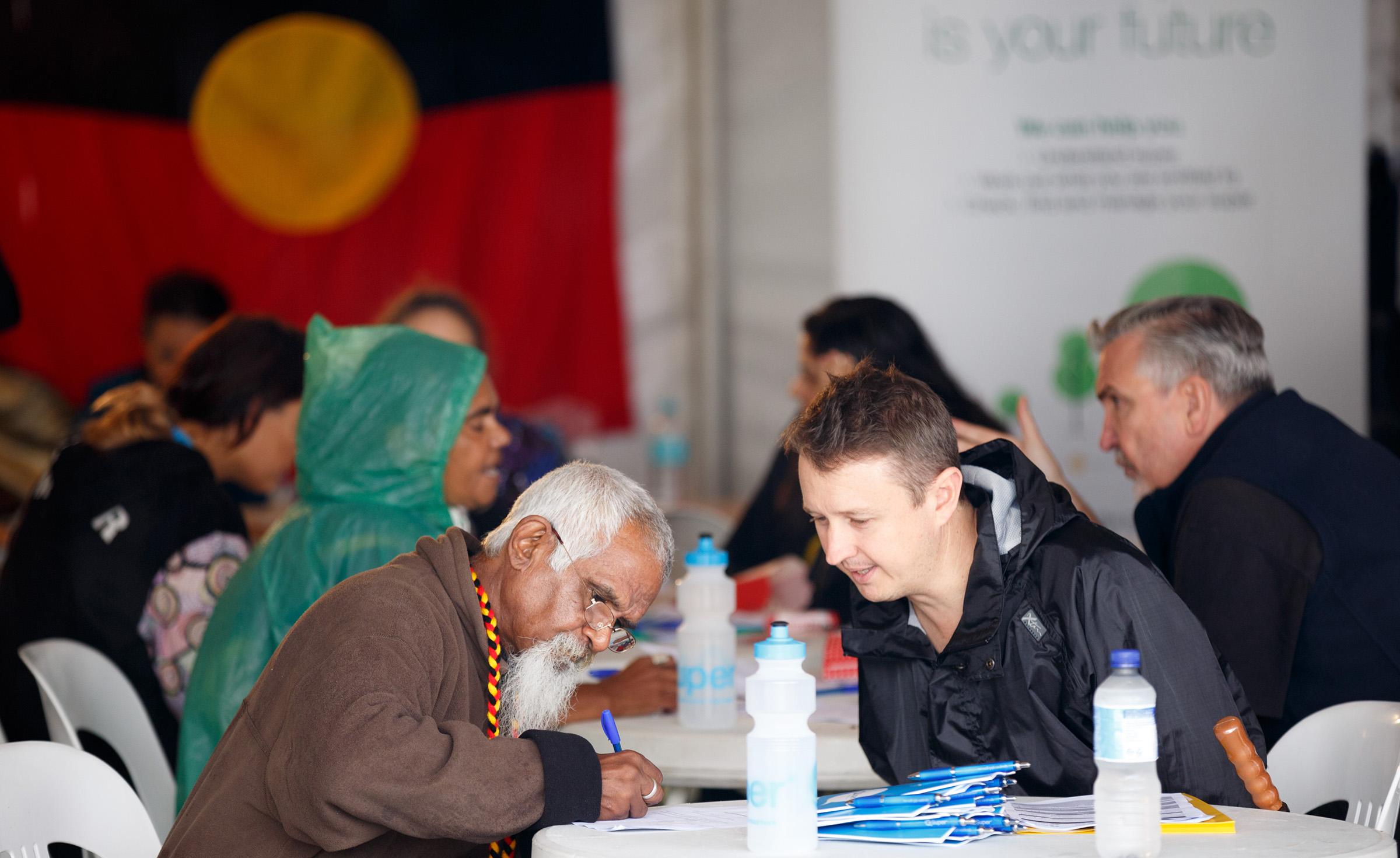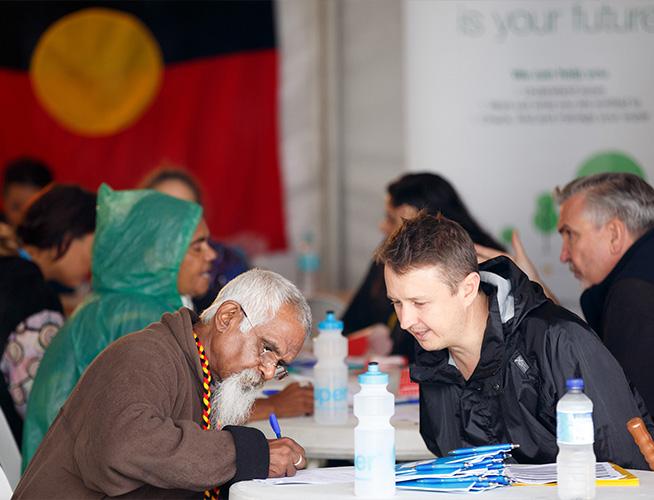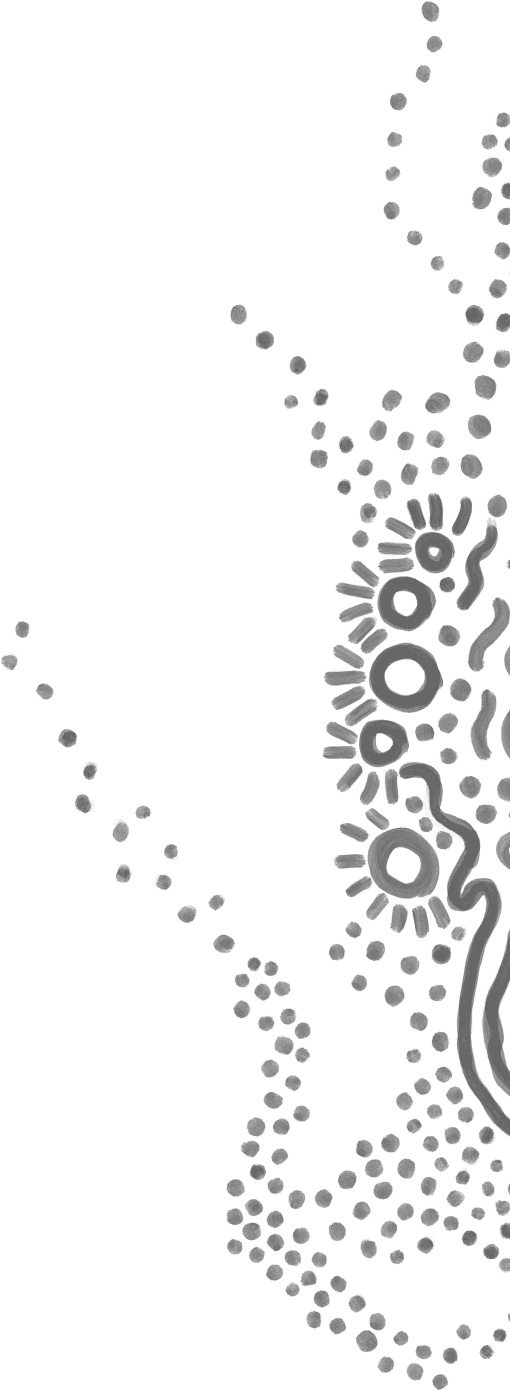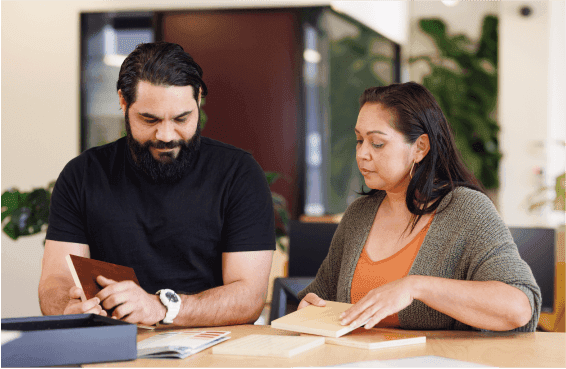July 27, 2020
By Anna Shaw
Achieving financial independence for Indigenous Australians
By Anna Shaw
July 27, 2020
Share this article


In 2019, the First Nations Foundation (FNF), in partnership with the Centre for Social Impact and the National Australia Bank (NAB), uncovered that just under 1 in 2 – 48 per cent – Indigenous people in Australia live in financial stress, across urban, regional and remote areas.
The research showed that in the case of an emergency, Indigenous people are less likely to be able to access $2,000 (2 in 5 could do this) compared to non-Indigenous people (4 in 5 could do this), and this is one of the indicators of financial stress.
Anna Shaw from RFi Group spoke to First Nations Foundation Chief Executive Officer, Phil Usher, about the importance of emergency funds, and the work the First Nations Foundation is doing to support and maximise the opportunity for financial prosperity for Indigenous Australians.
Usher is a Wiradjuri man from Central New South Wales, who grew up in Tamworth. With a background in business, Usher worked for the Australian government as part of their Indigenous community engagement team in Redfern, connecting Aboriginal people with Centrelink services and supporting students and people who were homeless.
With a personal passion for investment and wealth building, Usher became a business advisor, and then went on to become treasurer at the First Nations Foundation before being appointed CEO.
The First Nations Foundation started as a credit union in 1999, that was focused on banking services for Indigenous people.
In 2006, the First Nations Foundation was created with the goal of teaching financial skills to Indigenous people, and since then have created targeted financial literacy programs and events focused on Superannuation and Indigenous Super.
The First Nations Foundation focuses on four strategic pillars: Financial education, training and information for Indigenous Australians that is culturally designed; Programs and products that are centered around community and reflect financial wellbeing priorities of Indigenous Australians; Mutually beneficial partnerships with organisations focused on the same values; and Leadership that utilises evidence based research and data.
Usher’s passion for financial prosperity for Indigenous Australians stems from his experience, both personally and in the workforce, and seeing Indigenous employment start to shift with more Indigenous people moving into management positions.
This growth in income enables the creation of wealth legacies for families, and the opportunity for intergenerational wealth building.
Usher said: “We are seeing the second and third generations of an Aboriginal workforce, with Aboriginal people taking on more roles and the workforce seeing the value of Indigenous people in more senior roles.
“Engaging with Indigenous communities works better with an Indigenous person, and Indigenous Australia has a loud voice”.
An event like the Big Super Day Out warrants a conversation about finance and money and brings it back home.
The First Nations Foundation runs a superannuation outreach event called the Big Super Day Out, and through community partnerships and the FNF, over 1,600 Indigenous people were reunited with $24 million in Indigenous superannuation across urban, remote and regional communities.
Through a focus on the importance of financial literacy, and an emphasis on superannuation, the First Nations Foundation is “breaking down barriers and creating a flow on impact for Indigenous communities”, explained Usher.
“An event like the Big Super Day Out warrants a conversation about finance and money and brings it back home.
It changes the way Indigenous people can engage with and consume information and gives them the power to follow up”.
The FNF also runs an online education training platform called My Money Dream that is designed by Indigenous people to help users become more confident in managing their money, be more confident about their financial future and improve their ability to manage money.
As individuals become more financially empowered, they share knowledge with people in their community, creating a powerful community impact.
Usher explained that “wealth creation is very foreign when your parents lived pay-cheque-to-pay cheque.
My Money Dream shows users the power of assets and investing, and helps with the understanding of incremental expenses”.
An area that Phil Usher has been highlighting in the current climate is the impact of COVID-19 on Indigenous people, and how it has brought to light the importance of having an emergency fund.
Usher explained: “Australia has a reasonable welfare and social security system, however when the government announces an initiative, there is a lag between this announcement and people in need actually receiving the funds.
Understanding the lag that exists between hardship and receiving government assistance is important”.
RFi Group data shows that COVID-19 has had a particularly significant impact on the income of young Australians and those in casual or contracted employment, and young Australians who have had their impact decline due to COVID-19 hold less in savings on average than the total market.
Usher illustrated that financial experts typically recommend people have at least a six month savings buffer or emergency fund, however for some people this can seem impossible, and Usher recommended consumers “start with a four week emergency fund, as this is a less daunting goal”.
Looking to the future, Usher has sizeable plans for the First Nations Foundation.
Over the next six months, the First Nations Foundation will be launching a website focused specifically on superannuation for Indigenous people, with simple to understand and easily accessible information.
FNF will also be launching Indigenous Money, which will be a website comprised of information from Indigenous financial planners and financial counsellors, with content created by Indigenous people for Indigenous people.
Usher explained that growing up, it was difficult to find answers to some of the questions he had, such as how to get a Tax File Number, or what to do with your money when you travel overseas. Usher highlighted that “a resource such as Indigenous Money will be a kind of ‘go to’ place for information that will be really valuable, particularly for those under 30”.
Anna Shaw is the client insights manager at RFi Group.
Share this article


Related articles
Media release
May 26, 2025

Media release
May 26, 2025
First Nations Foundation Welcomes Leah Bennett as Managing Director
Read more
Media release
August 6, 2024

Media release
August 6, 2024
First Nations Foundation partners with Morningstar to launch investment training for Aboriginal and Torres Strait Islander people
Read more
Media release
May 31, 2024

Media release
May 31, 2024
FNF calls on government and financial institutions to do more for economic reconciliation
Read more